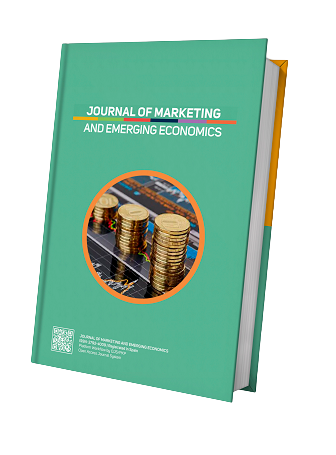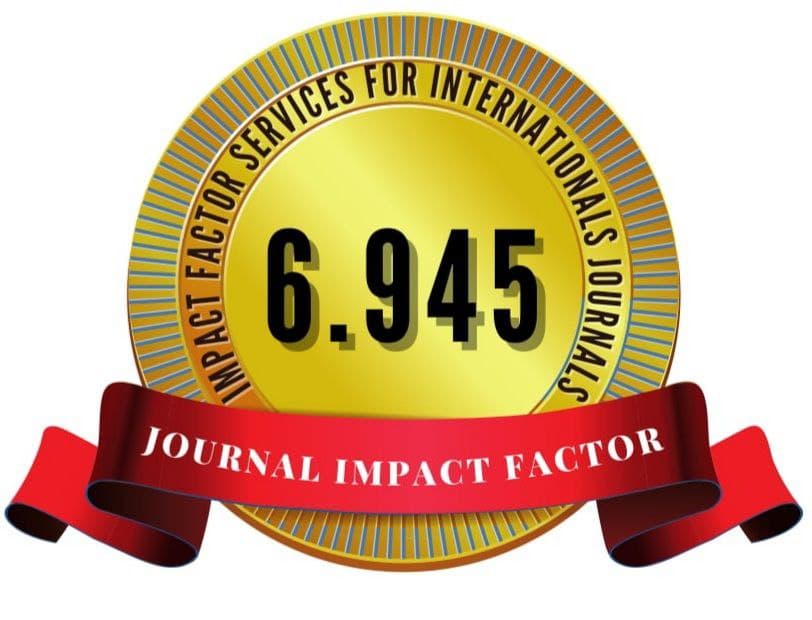Main Development Directions of The Digital Economy: “Digital Uzbekistan–2030” Strategy and its Essence
Keywords:
Digital Economy, Digital Transformation, Uzbekistan, Public Services, E-Government, Digital Uzbekistan–2030, Innovation Policy, InfrastructureAbstract
This study examines the key development directions of the digital economy in Uzbekistan, with a particular focus on the national strategy “Digital Uzbekistan–2030.” Despite growing interest globally, significant knowledge gaps remain regarding the localised impact of digital transformation policies in emerging economies. To address this, the research applies qualitative analysis of policy documents, statistical indicators, and sectoral reforms across public administration, education, industry, and commerce. The findings reveal that the “Digital Uzbekistan–2030” strategy has substantially accelerated the integration of digital technologies, improved the accessibility of public services, and increased economic competitiveness. For instance, by 2020, over 70% of government services had been digitised, and e-commerce demonstrated 35% growth. Initiatives such as “Digital School” and “Digital University” have improved education delivery, while industrial digitalisation has enhanced productivity and reduced operational costs. However, the analysis also identifies challenges, particularly in infrastructure gaps and regional disparities in digital literacy and access. These limitations suggest a need for stronger intersectoral collaboration, targeted infrastructure investment, and broader digital skills training. The implications of this research emphasise that while the digital economy holds transformative potential for Uzbekistan, sustained strategic implementation and inclusive digital policies are essential for long-term success.
References
[1] E. Brynjolfsson and A. McAfee, The Second Machine Age: Work, Progress, and Prosperity in a Time of Brilliant Technologies. New York: W. W. Norton & Company, 2014.
[2] E. Duflo, Good Economics for Hard Times. New York: Public Affairs, 2019.
[3] Sh. Mirziyoyev, “O‘zbekiston Respublikasi Prezidenti Shavkat Mirziyoyevning 2017 yil 5 apreldagi farmoni,” 2017.
[4] O‘zbekiston Respublikasi Raqamli texnologiyalar vazirligi, "Raqamli O‘zbekiston – 2030" strategiyasi. Toshkent, 2020.
[5] PwC, Global Digital IQ Survey: Creating the Future of Work. PwC Publishing.
[6] A. Ayvazov, Raqamli iqtisodiyot va uning global iqtisodiyotdagi roli. Toshkent: O‘zbekiston ilmiy nashriyoti, 2017.
[7] “Raqamli O‘zbekiston 2030 strategiyasini amalga oshirishda kadrlar tayyorlashning o‘rni,” O‘zbekiston Respublikasida raqamli iqtisodiyotning rivojlanish istiqbollari, Toshkent: O‘zbekiston davlat iqtisodiyot universiteti nashriyoti, 2021.
[8] World Economic Forum, The Future of Jobs Report 2020. Geneva: World Economic Forum, 2020.
[9] S. B. Boboqulov, “Kommunal xizmat ko‘rsatish sohasining xorij tajribasi va mamlakatimizda ulardan foydalanish yo‘llari,” Innovatsion texnologiyalar, vol. 1, no. 4(48), pp. 116–120, 2022.
[10] S. B. Bobokulov, “Rol’ modernizatsii v povyshenii effektivnosti sistemy kommunal’nykh uslug,” Ekonomika i predprinimatel’stvo, no. 7, pp. 820–822, 2020.
[11] A. B. Mirzaxodjayev, Sh. Sharifov, and S. B. Boboqulov, MAKROIQTISODIYOT o‘quv qo‘llanma, 2021.
[12] S. B. Boboqulov and D. D. Qadamboyeva, “Raqamli iqtisodiyoti sharoitida innovatsion texnologiyalar asosida tadbirkorlik faoliyatini rivojlantirish istiqbollari,” Jurnal Marketing va Boshqaruv Masalalari, no. 7, 2023. [Online]. Available: https://cyberleninka.ru/article/n/raqamli-iqtisodiyoti-sharoitida-innovatsion-texnologiyalar-asosida-tadbirkorlik-faoliyatini-rivojlantirish-istiqbollari [15] D. Gavalas and T. Syriopoulos, “Bank loan quality and credit risk exposure: A multi-criteria decision approach to collateral selection in shipping,” Econ. World, vol. 1, no. 1, pp. 54–70, 2013.
Downloads
Published
How to Cite
Issue
Section
License
Copyright (c) 2025 Bobokulov S.B

This work is licensed under a Creative Commons Attribution 4.0 International License.






